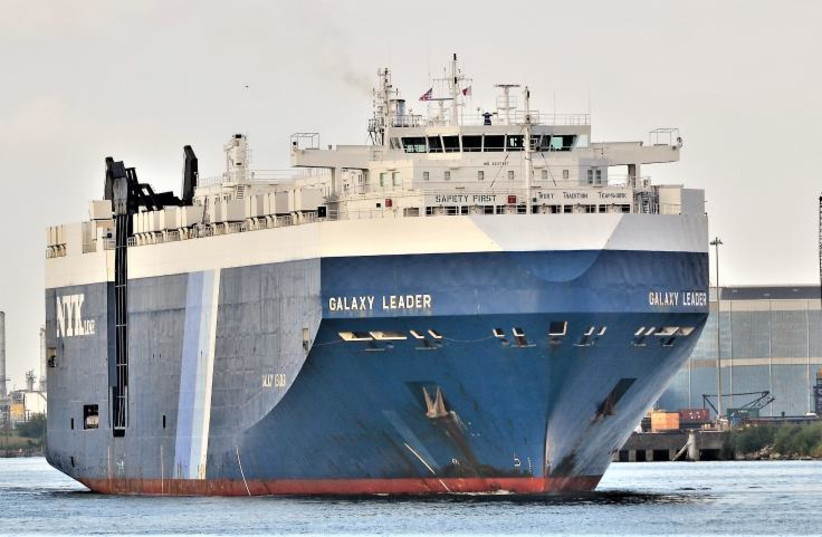Tehran has increased its aggression against Israel and the free world, Prime Minister Benjamin Netanyahu said after Yemen’s Houthis, an Iranian proxy group, had seized a British-owned and Japanese-operated cargo ship in the southern Red Sea.
Netanyahu immediately blamed Iran.
“We strongly condemn the Iranian attack against an international ship,” Netanyahu said. “This is another act of Iranian terrorism that expresses a leap forward in Iran’s aggression against the citizens of the free world, and creates international implications regarding the security of global shipping lanes.”
Some 25 crew members of different nationalities, including Ukrainians, Bulgarians, Filipinos, and Mexicans were onboard the ship. No Israelis were present on it.
The attack came as the US and other Western powers have worked to prevent the regionalization of the Gaza war between Israel and the Iranian proxy terrorist group Hamas that perpetrated the October 7 massacre of at least 1,200 people, including at least 250 foreign nationals, with more still missing and possibly kidnapped.

Iranian proxies threaten regional stability
At issue is the fear of a second front between Hezbollah in Lebanon, another Iranian proxy terrorist group, and a wider and more direct conflict with Iran itself.
The Houthis said they had seized a ship in that area, but described it as Israeli. “We are treating the ship’s crew by Islamic principles and values,” a spokesperson for the group said, not referring to the Israeli account. Its armed forces said on Sunday they would continue to attack Israeli ships.
The Houthis, allies of Tehran, have been launching long-range missile and drone salvos at Israel in solidarity with the Hamas terrorists fighting in the Gaza Strip.
Last week, the Houthi leader said his forces would make further attacks on Israel, and they could target Israeli ships in the Red Sea and the Bab-el-Mandeb strait.
A US defense official said, “We’re aware of the situation and are closely monitoring it.”
On Saturday, before the attack, US presidential adviser Brett McGurk told the International Institute for Strategic Studies during its Manama conference that the US was prepared for all contingencies in the region, noting that it had, for this reason, moved a carrier strike group into the eastern Mediterranean.
“We did not deploy a carrier strike group because of the threat coming from Hamas,” he stated, but rather with an eye toward Iran and many of its proxy groups.
“We had a cruiser deployed in the Red Sea, not by happenstance,” McGurk stressed.
“When the Houthis launched almost 30 ballistic missiles and UAVs we believe at Israel… our cruiser destroyed, shot them down,” he said.
“That is why we deployed our military assets here, and they are going to stay here as we work our way out of this crisis,” he said.
Amos Hochstein, a senior adviser to US President Joe Biden and for energy and investment, also spoke of US efforts to contain the Gaza war when he addressed the Manama conference on Sunday.
At the end of the day, the US and Gulf governments and the global community have been very clear that shutting down this shipping route is “unacceptable.”
Iran and its proxies know that this is “a redline.”
About the Lebanese border, he said “We cannot afford the escalation of this conflict into another front. It’s of utmost importance to ensure that the Gaza war does not spread to Lebanon.”
Reuters contributed to this report.
